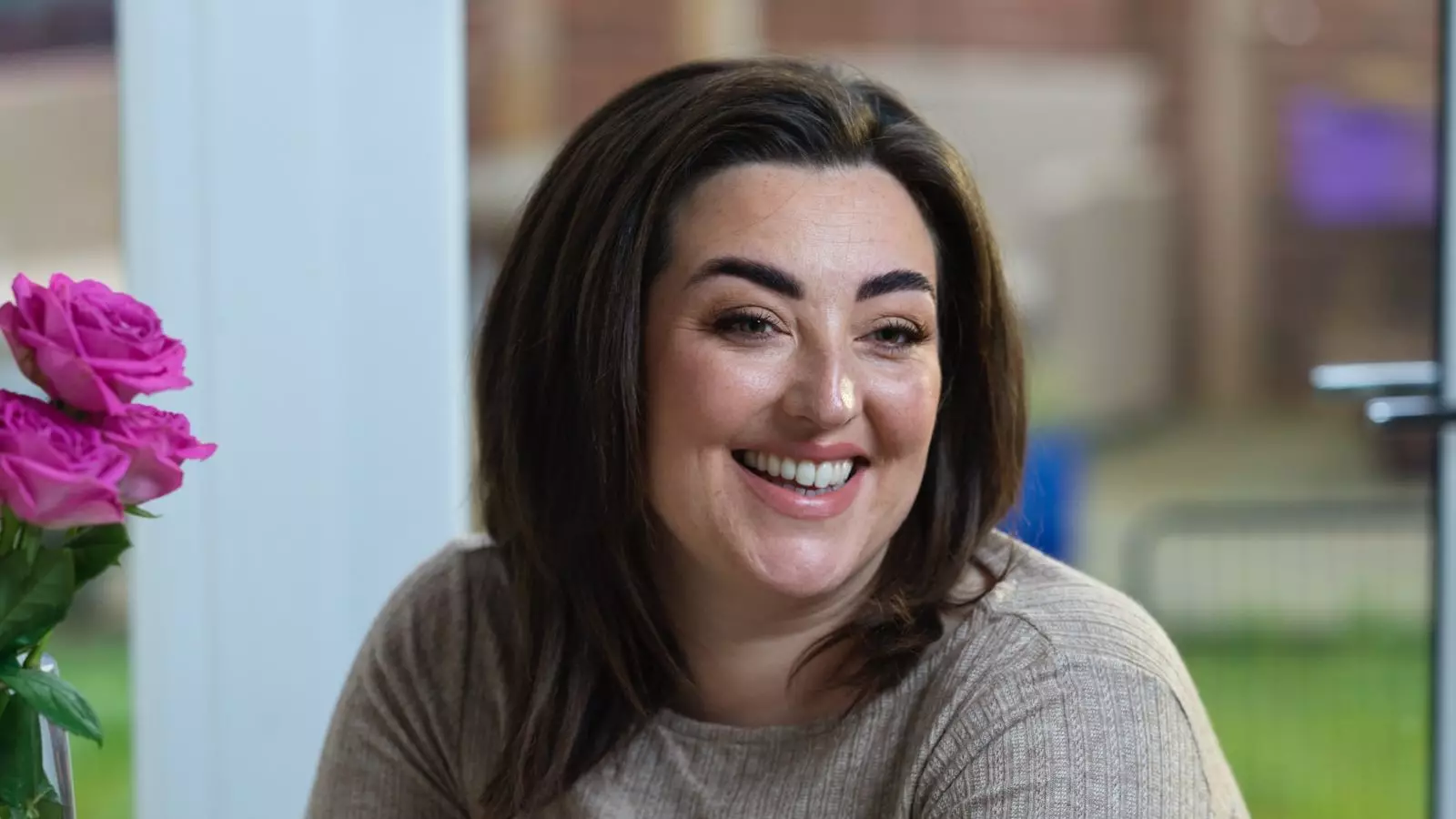In the often unpredictable journey of life, the diagnosis of advanced bowel cancer can feel like a death sentence. This was the reality faced by Bianca Perea, a 32-year-old trainee lawyer from Manchester, who learned of her condition in November 2021. Initially presenting with common symptoms such as constipation and bloating, her situation rapidly escalated after medical evaluations revealed stage four bowel cancer—an advanced form characterized by its spread to multiple locations, including all eight segments of her liver.
Despite the severity of the diagnosis, it is essential to note how Perea remained resolute and believed in the possibility of a different outcome. The delicate interplay between human emotion and medical reality became evident as her mother inquired about a liver transplant, only to be met with discouragement from the medical community. This disheartening moment, however, did not diminish Perea’s unwavering spirit as she embarked on a path that would ultimately defy expectations.
Ms. Perea was not one to surrender to fate. With a strong sense of agency, she pursued various treatment options. Her medical journey included an extensive regimen of 37 rounds of a targeted drug, panitumumab, alongside chemotherapy conducted over two and a half years. Remarkably, her body responded well to these interventions, leading to surgery in May 2023, where doctors successfully removed the primary bowel tumor. Yet, the lingering threat of untreated tumorous cells in her liver loomed, necessitating a groundbreaking exploration into liver transplantation as a viable solution.
This transition from traditional therapies to an innovative approach underlies a critical juncture in cancer treatment: the acknowledgment that conventional methodologies may not suit every patient. Perea’s remarkable response to comprehensive therapies ignited discussions within medical circles about her eligibility for a liver transplant. Adding her to the transplant list was both a bold and calculated decision that underscored the evolving landscape of cancer treatment in the UK.
The true turning point in Perea’s battle with cancer came during the summer of 2024 when a suitable donor liver became available. The surgery, a pioneering endeavor in the realm of oncology, not only marked a breakthrough for Perea but also raised questions regarding the future of treating advanced cancer. Following the transplantation, recovery was swift and near miraculous; within four weeks, she was back to walking the family dogs and driving, experiences she had nearly thought were behind her.
Perea’s exuberance following such a life-changing event exemplifies the human spirit’s resilience and the psychological component intertwined with medical recovery. She proclaimed, “To go from being told I’d only have a short time to live to now being cancer-free is the greatest gift.” Such sentiments resonate deeply with the hope that complex medical cases can yield unexpected, life-altering outcomes.
Dr. Kalena Marti, Perea’s oncologist, highlighted the broader implications of her case, stating: “To see that Bianca has had such a positive outcome is wonderful.” The excitement surrounding her health extends past personal victory; it speaks volumes about the need for diverse treatment options for complex conditions like advanced bowel cancer. The observation of inactive tumor cells post-surgery signifies not only hope for Perea but serves as a beacon for future patients facing similar battles.
Doctors, researchers, and the medical community at large are reminded of the importance of continuous innovation and exploration in cancer treatments, understanding that personalized medicine is the future of effective care. Perea’s journey epitomizes a shift in perspective; that even in desperate situations, where traditional treatments may not guarantee success, there can be alternatives that lead to miraculous turnarounds.
As Bianca Perea is now cancer-free, she is embracing a future filled with plans, from vacations to focusing on her fitness. Patients like her, who redefine the narratives associated with terminal diagnoses, inspire not only hope but also emphasize the ongoing need for research and improved treatment modalities. As we move forward, the importance of innovative therapies and compassionate care cannot be overstated. Perea stands as a testament to the idea that with comprehensive treatment approaches, determination, and support, the unthinkable can indeed become a reality.



Leave a Reply